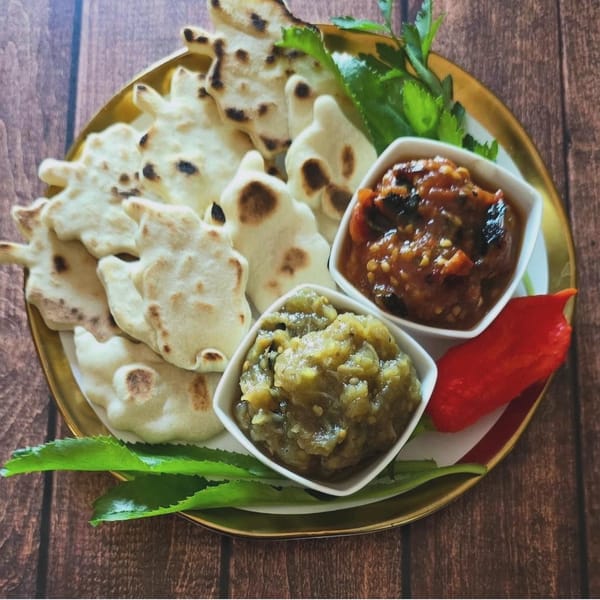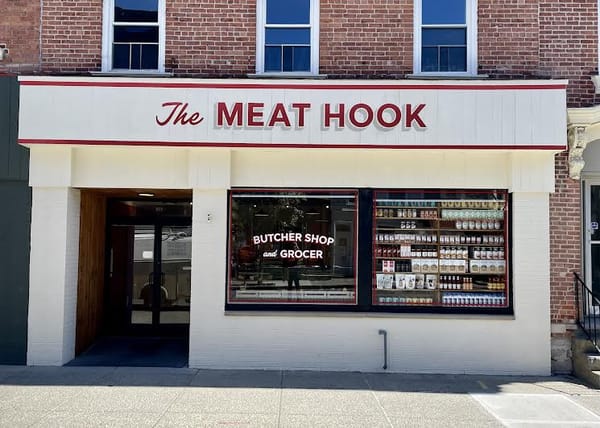
AgriCulture bloggers Peter Davies and Mark Scherzer are the owners of Turkana Farms in Germantown, NY. This week, Mark writes: If you want to know what empathy is, follow the expression on a young man's face as he assists at a piglet's castration. Last Sunday I watched bemusedly as Tony, below, who is helping us part time this summer, darted a glance quickly down at the tiny piglet whose leg he was holding, widened his eyes, winced in almost visceral pain, and then intently stared off into distant space, mouth contorted, while the surgery proceeded. That was for the first piglet. For the second one, he never shifted his gaze downward at all. Even though we assemble three people to assist the vet (probably a bit overstaffed), castration day is always something of an ordeal. It starts with catching the piglets. I am the designated catcher, a task that varies in difficulty, depending on where the sow and her litter are housed. If they are in the pen we have set up for this purpose, I simply have to deposit food in the corner we have created with a low fence. The piglets enter through an opening in the fence too small for their mother to follow, and once they are in, I block the opening, locking them into the corner, then simply reach in and pick them up. Last week, however, they were in one of the other pens lacking this feature, along with their mother, Jane (cousin to Eyre). I had to climb into the pen, fending off Jane. then use a large fisherman’s net to catch the scampering piglets, jumping out, with Jane in close pursuit. One of the piglets escaped the net, forcing me to corner him again. In a castration session a few years ago, one I was fortunate to have missed, a young kid we had hired to do the deed found himself backed up against the pen fence as the enraged sow charged him. According to Peter, the poor guy, obviously powered by a surge of adrenaline, escaped by doing a backflip over the fence.
.jpg)
As piglets are caught and lifted from the ground, they emit loud squeals and unearthly shrieks, but once they are securely in my arms, they generally quiet down, and my role in the castration becomes perhaps the least traumatic. I clasp the back of the piglet to my chest, so he is facing away from me, my hands holding his front legs. I murmur soothing words into his ears. I can’t really see what’s going on below. Meanwhile, Peter and an assistant face me, each holding one of the piglet’s hind legs away from the groin area. They have a front row view as Elaine, our trusty, cool-headed vet, makes incisions and quickly yanks out the testicles. She is quite practiced at this, and it’s usually over in a matter of a minute or two. During the operation itself, the piglets usually seem unaffected by pain and don't seem to have much awareness of what's going on. And the minute you put them back down in the pen with their mothers, they return to nursing and running around as if nothing has happened. Their relative equanimity about the process does not do away with the trauma for the human witnesses, however. We men, particularly, seem to feel the pain on behalf of the poor little piglets. We don't relish castration days. So why do we do it? The first reason that comes to mind is control of the testosterone level on the farm. Intact males are aggressive, challenge each other and their owners, and create chaos when intent on breeding or establishing their pecking order. We see the power of the sexual urge and male hormones every day. If we are to keep the peace and exercise reasonable control over the breeding schedule, we must carefully control the number and placement of intact males

But this is not the whole story behind castration. There is yet another, even more compelling reason for this unsavory task—the flavor of the meat. There seems to be near universal consensus in America today that meat from sexually mature intact males just doesn’t taste very good, especially as they get older. Farmers I've spoken to say that male hormones makes the meat of all large livestock, including cattle and sheep, unpalatable, but the distaste seems particularly strong where pigs are concerned. Does the meat from mature intact males really taste different? Our experience with the slaughter of a ram years ago suggested it did, but we haven’t made a scientific study of the question. Others have. I found a University of Wyoming study, for example, comparing palatability of intact rams with wethers. They determined that the meat of wethers was generally more tender than that of young intact rams, though the flavor was similar. But, they found, as rams age and became heavier, their meat also developes a marked “staggy” or ammonia-like odor. This is not to most Americans’ taste, and I’m not sure if it is to anyone’s. We do have customers who like somewhat older lambs, for their stronger flavor. Our Uzbeki customers even like adult sheep up to 3 or 4 years old. And of course the English and Australians have long loved their mutton. But we have not yet found any customers clamoring for meat from intact males of any of our livestock. I’ve seen wild boar on some menus, and found it quite tasty, but I assume that what is being served is either very young intact boars or simply feral female pigs. If leaving the piglets intact did not make them unsaleable, we might well figure out ways to avoid the surgical castration. Thankfully, when we turn our little bull calves into steers and little rams into wethers, no surgery is required. Unlike pigs, these animals have hanging scrotums that can be removed by placing a band around them, above their testicles, that cuts the blood flow so the scrotum gradually atrophies and falls off. I’ve been learning to do a reasonably good job of this myself, at least on the lambs, obviating the need for surgery. But for the piglets, there is no alternative. So why do we engage in this barbaric-appearing practice? My friend George, disturbed that we might be doing this just for a minimal improvement in flavor, asked only half in jest, "What's the next Turkana taste test? 'Bovine Waterboarding: Added Flavor, or Just a Waste of Time?' or 'The Rack: Prior to the Kill, or Only in the Oven?' " But it's really the difference between enjoying flavorful and tender meat or ingesting something that tastes like ammonia. Now that you realize its value, let us know if you’d like to volunteer to assist at the next castration. —Mark ScherzerFor the complete archive of past AgriCulture blogs, click here.








